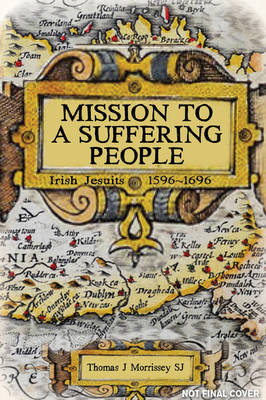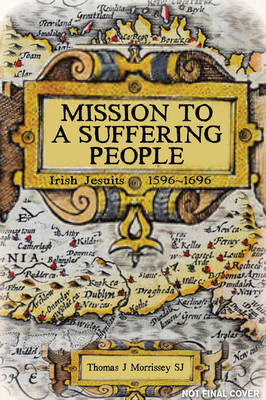
Door een staking bij bpost kan je online bestelling op dit moment iets langer onderweg zijn dan voorzien. Dringend iets nodig? Onze winkels ontvangen jou met open armen!
- Afhalen na 1 uur in een winkel met voorraad
- Gratis thuislevering in België vanaf € 30
- Ruim aanbod met 7 miljoen producten
Door een staking bij bpost kan je online bestelling op dit moment iets langer onderweg zijn dan voorzien. Dringend iets nodig? Onze winkels ontvangen jou met open armen!
- Afhalen na 1 uur in een winkel met voorraad
- Gratis thuislevering in België vanaf € 30
- Ruim aanbod met 7 miljoen producten
Zoeken
€ 26,45
+ 52 punten
Omschrijving
In 16th and 17th century Ireland religion and nationality fused together in a people's struggle to survive. In that struggle the country's links with Europe provided a life line. Members of religious orders, with their international roots, played an important role. Among them were the Irish Jesuits, who adapted to a variety of situations - from quiet work in Irish towns to serving as an emissary for Hugh O'Neill in the south of Ireland and in the courts of Rome and Spain, and then founding seminary colleges in Spain and Portugal from which young Irishmen returned to keep faith and hope alive. In the seventeenth century persecution was more haphazard. There were opportunities for preaching and teaching and, at time, especially during the Confederation of Kilkenny in the 1640s, for the open celebration of one's religion. This freedom gave way to the savage persecution under Cromwell, which resulted in the killing of some Jesuits and others being forced to find shelter in caves, sepulchres, and bogs, the Jesuit superior dying alone in a shepherd's hut on an island off Galway. There followed a time of more relaxed laws during which Irish Jesuits publicly ran schools in New Ross and, for Oliver Plunkett, in Drogheda, but persecution soon resumed and Oliver Plunkett was arrested and martyred. At the end of the century, as the forces of King James II were finally defeated, some Jesuits lived and worked through the sieges of Limerick and then nerved themselves to face the Penal Laws in the new century.
Specificaties
Betrokkenen
- Auteur(s):
- Uitgeverij:
Inhoud
- Aantal bladzijden:
- 128
- Taal:
- Engels
Eigenschappen
- Productcode (EAN):
- 9781788123402
- Verschijningsdatum:
- 17/05/2021
- Uitvoering:
- Paperback
- Formaat:
- Trade paperback (VS)
- Afmetingen:
- 140 mm x 208 mm
- Gewicht:
- 181 g

Alleen bij Standaard Boekhandel
+ 52 punten op je klantenkaart van Standaard Boekhandel
Beoordelingen
We publiceren alleen reviews die voldoen aan de voorwaarden voor reviews. Bekijk onze voorwaarden voor reviews.











